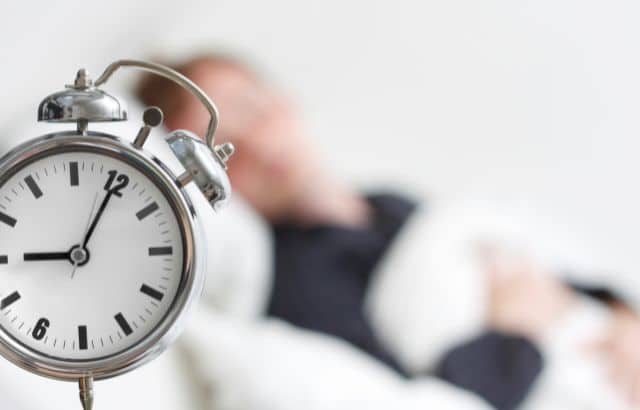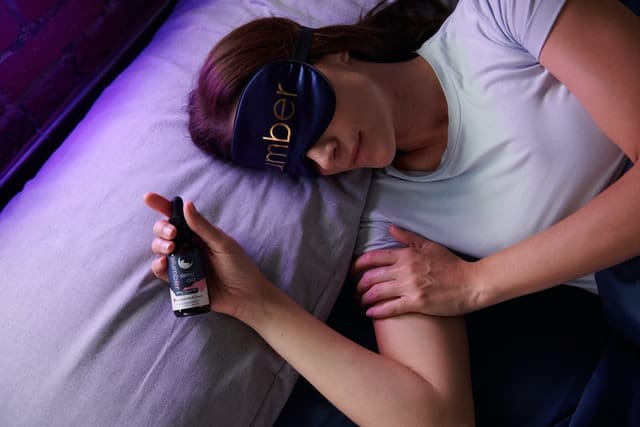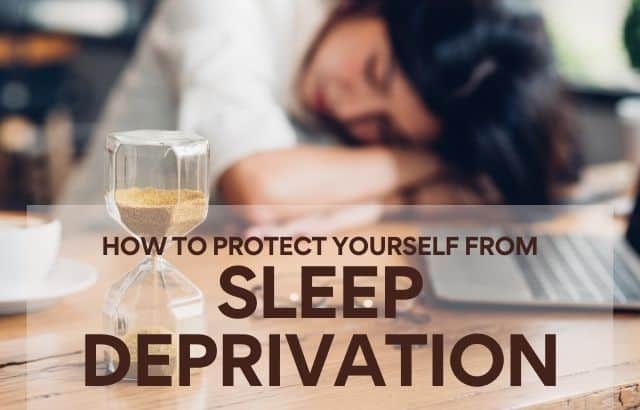Sleep deprivation is a problem experienced by almost any working individual around the world. Sleep deprivation is when a person does not obtain adequate hours of rest at night. It is crucial for humans to get the recommended nightly sleep they require for many reasons. One main reason is when someone enters a sleep cycle; the brain is actively trying to reboot itself and prepare for any activity it may face on the following day. Many people believe the brain shuts down completely during sleep, though it is, in fact, working to maintain biological functions. How healthily the brain functions on a day-to-day basis can be directly correlated to the amount of rest, the brain received prior.
Celebrated Astro Strategist cum Business Astrologer™ Hirav Shah says, “Americans invest a ton of energy at work, notwithstanding a workday that midpoints 9.5 hours; a new poll found that Americans are spending in excess of four additional hours working from home every week. Tragically, more work regularly results in less sleep. This equivalent overview figured out that respondents’ sleep time was decreased by 90 minutes during workdays, contrasted with their sleep on non-work days.
While work timetables and stress can influence sleep, the inverse is valid also. In the event that you’ve at any point fallen asleep at your work area or during a significant gathering, you realize that sleep misfortune can inconveniently affect work performance. Sleep hardship can leave you feeling drained, less inventive and make it harder to remain fixed on significant tasks.”
Hirav adds, “Sacrificing sleep for work, then, at that point, working more to compensate for lost productivity can turn into a debilitating cycle. Luckily, understanding the connections between sleep and occupation performance can enable individuals with the information expected to end this example. Making a limit between work and home life can be trying first and foremost. However, it’s a significant advance towards both better sleep and more predictable occupation performance.
If the workforce is constantly failing to get adequate sleep, the workforce may face undesired outcomes. Because sleep deprivation is becoming a more common occurrence, it is important companies educate their employees and management on the subject and the effects it may have on an organization.”
Hirav Shah explains that in the past century, scientists have worked to come up with an estimate for the average hours of rest an individual should be getting nightly according to their age. The younger the individual, the more shut-eye they should be obtained on a nightly basis. Children ages seven to thirteen years old should be getting nine to eleven hours of sleep nightly. Once an individual grows to be 17 years of age or older, the number of hours needed nightly reduces to seven to nine hours of sleep a night.
Table of Contents
Effects of sleep loss on work performance

There are many side effects that not getting enough rest can cause. For instance, someone who does not get adequate sleep every night may have difficulty staying focused on monotonous tasks. When you are drowsy, you lose your motivation, mental sharpness, and ability to handle stress in the appropriate manner. When you are deprived of sleep, you might also have hindered motor skills and coordination, which can result in accidents at the workplace if dealing with machinery that requires certain physical skills to use.

If a forklift driver is sleep-deprived, their judgment on how high or far to lift a lot of goods can be blurred, and they may end up making a mistake that can cost the organization money and or injure someone. If both outcomes can be prevented by getting more sleep at night, then companies should stress the importance of adequate sleep to their employees. If employees are getting inadequate sleep, it can create an unsafe and possibly hostile work environment.

There have been events in history that are believed to be linked to sleep deprivation, such as Flight 3407 and the Exxon oil spill. In 2009 there was a flight that was approaching New York that randomly fell out of the sky. The crash was originally thought to be because of excess icing due to weather, but it was later found out that the crash was caused by a user error.

It was also concluded that the pilot and co-pilot of the flight were both sleep-deprived from flying strenuous hours, which is why they committed the error. Fifty lives were lost as well as a large sum of cash from the airline for damages. This event goes to show how detrimental getting adequate sleep can be for performing your job at an optimal level.

As you can tell, it should be a huge priority for companies to be able to identify and aid their employees in fighting sleep deprivation. A workforce that is sleep deprived is highly unproductive compared to a well-rested group of workers. Not only is a sleep-deprived workforce unproductive, but it also is more susceptible to workplace accidents that can be negative incidents for organizations.

Therefore, sleep deprivation can cause a lack of mental focus, motor coordination, and the ability to handle stressful work conditions. These effects can lead to a frustrated and unproductive workforce. As a preventative measure, companies should be educating their employees on why sleep deprivation can be destructive and should also train management on how to spot and combat sleep deprivation
7 Essential Tips to Protect Yourself from Sleep Deprivation
Sleep is a crucial aspect of maintaining good physical and mental health. Unfortunately, many people struggle with sleep deprivation, which can negatively impact their overall well-being. In this blog, we will discuss seven essential tips to help you protect yourself from sleep deprivation and improve your sleep quality.
1. Establish a Consistent Sleep Schedule:

One of the most effective ways to combat sleep deprivation is to establish a consistent sleep schedule. Try to go to bed and wake up at the same time every day, even on weekends. This helps regulate your body’s internal clock and promotes better sleep.
2. Create a Relaxing Bedtime Routine:

Developing a relaxing bedtime routine can signal to your body that it’s time to wind down and prepare for sleep. Avoid stimulating activities, such as watching intense TV shows or using electronic devices, in the hour before bedtime. Instead, engage in calming activities like reading a book, taking a warm bath, or practicing meditation.
3. Create a Comfortable Sleep Environment:

Your sleep environment plays a crucial role in the quality of your sleep. Make sure your bedroom is cool, quiet, and dark. Invest in a comfortable mattress and pillows that support your body. Additionally, consider using white noise machines or earplugs to block out any disruptive sounds that may interfere with your sleep.
4. Limit Caffeine and Alcohol Intake:

Caffeine and alcohol can significantly interfere with your sleep quality. Avoid consuming caffeine, such as coffee or energy drinks, too close to bedtime, as it can disrupt your ability to fall asleep. Similarly, although alcohol may make you initially drowsy, it can disrupt your sleep patterns and lead to poor sleep quality.
5. Exercise Regularly:

Regular exercise can promote better sleep by reducing stress and anxiety. Engaging in physical activity during the day can help you fall asleep faster and enjoy more restful sleep at night. However, avoid exercising too close to bedtime, as it can energize your body and make it difficult to sleep.
6. Manage Stress and Anxiety:

Stress and anxiety are common culprits of sleep deprivation. Find healthy ways to manage stress, such as practicing relaxation techniques like deep breathing or engaging in activities you enjoy. Consider incorporating mindfulness practices like yoga or meditation into your daily routine to promote a calm and peaceful mindset before bedtime.
7. Seek Professional Help if Needed:

If your sleep deprivation persists despite incorporating these tips, it may be helpful to consult a healthcare professional. They can evaluate your sleep patterns and provide guidance or suggest further interventions if necessary.
Conclusion:
Prioritizing sleep is crucial for maintaining good physical and mental health. By implementing these seven essential tips, you can protect yourself from sleep deprivation and improve the quality of your sleep. Remember, sleep is a vital investment in your overall well-being, and taking steps to prioritize it will yield long-term benefits for your health and happiness.
Remember that these tips are general recommendations and may not be suitable for everyone. It’s always a good idea to consult with a healthcare professional for personalized advice regarding your specific sleep needs and concerns. Sleep well and stay healthy!
.
Hirav Shah, in conclusion, says, “Alongside the passionate effect, sleep hardship can negatively affect your intellectual capacities, including discernment, judgment, response time, and dynamic.
Indeed, seventeen hours of supported attentiveness, like a difficult day in the workplace, has been displayed to bring about conduct changes comparable to drinking two glasses of wine. On the off chance that alertness proceeds for 24 hours, you may go about as though you have smashed four glasses of wine. Reduced psychological performance can have immense repercussions for experts whose positions request basic scrupulousness, like specialists, pilots, and drivers.
It has become lamentably apparent that the impacts of a sleep-deprived workforce can be heartbreaking. The Three Mile Island atomic emergency, the Chernobyl atomic blast, the Exxon Valdez oil slick, and the Challenger space transport catastrophe were all the consequence of human blunder brought about by sleepiness.
Regardless of whether it’s improving workplace productivity or turning away from the huge scope of calamities, better sleep is obviously better for business.”










